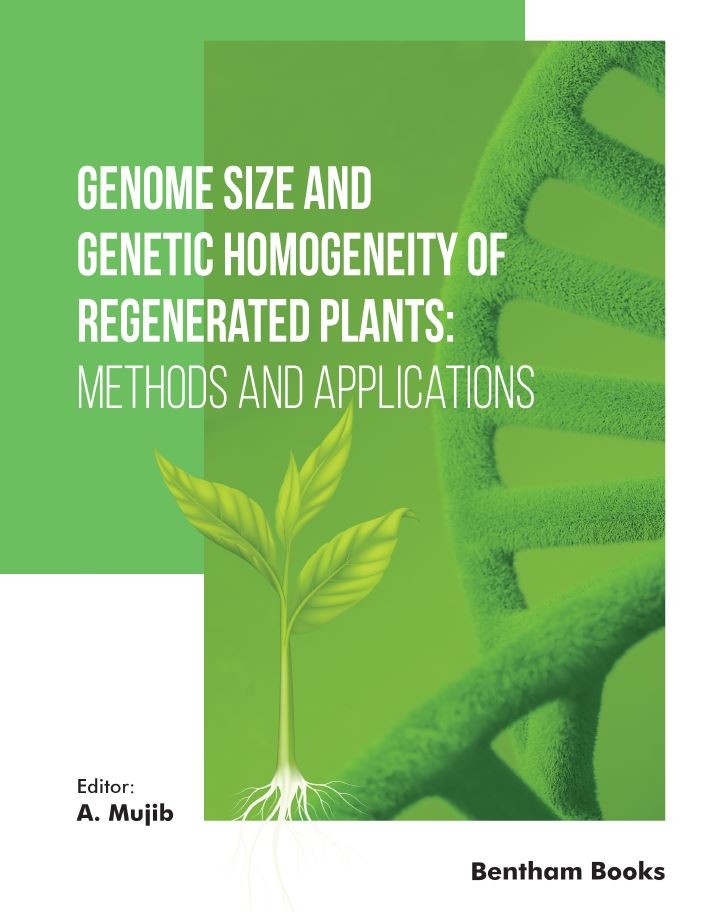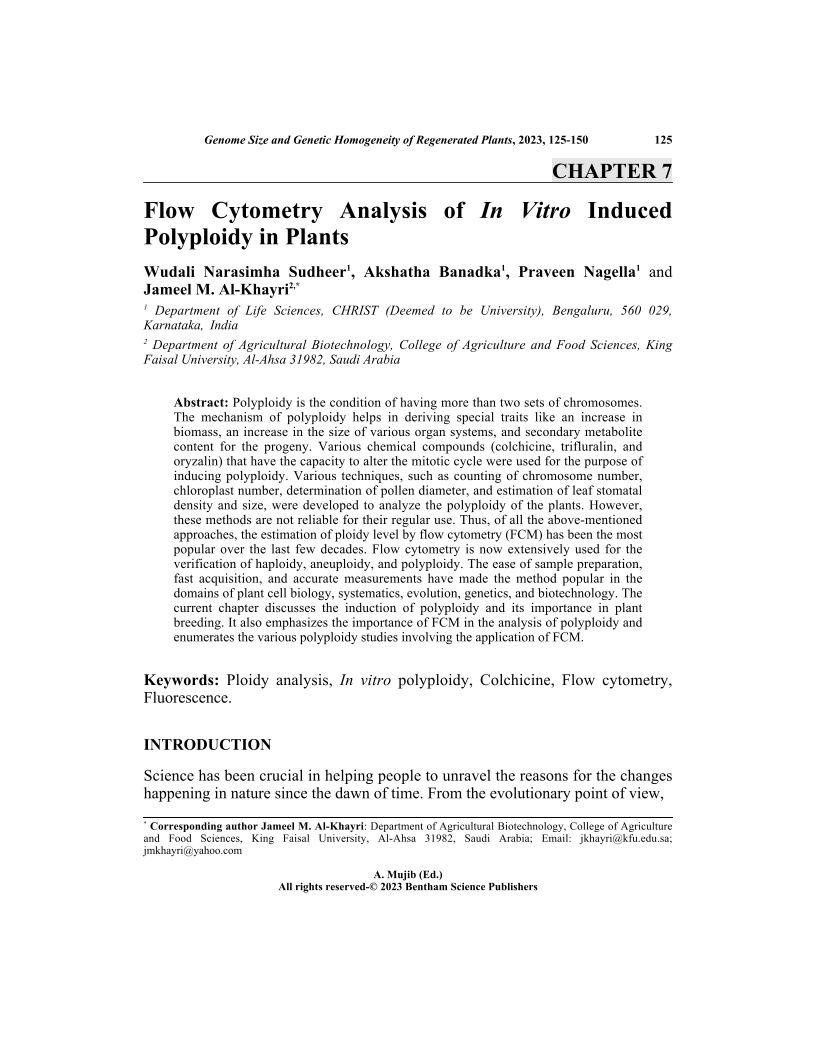Flow Cytometry Analysis of In Vitro Induced Polyploidy in Plants

- Authors: Wudali Narasimha Sudheer1, Akshatha Banadka2, Praveen Nagella3, Jameel M. Al Khayri4
-
View Affiliations Hide Affiliations1 Department of Life Sciences, CHRIST (Deemed to be University), Bengaluru, 560 029, Karnataka, India 2 Department of Life Sciences, CHRIST (Deemed to be University), Bengaluru, 560 029, Karnataka, India 3 Department of Life Sciences, CHRIST (Deemed to be University), Bengaluru, 560 029, Karnataka, India 4 Department of Agricultural Biotechnology, College of Agriculture and Food Sciences, King Faisal University, Al-Ahsa 31982, Saudi Arabia
- Source: Genome Size and Genetic Homogeneity of Regenerated Plants: Methods and Applications , pp 125-150
- Publication Date: September 2023
- Language: English
Flow Cytometry Analysis of In Vitro Induced Polyploidy in Plants, Page 1 of 1
< Previous page | Next page > /docserver/preview/fulltext/9789815165555/chap7-1.gif
Polyploidy is the condition of having more than two sets of chromosomes. The mechanism of polyploidy helps in deriving special traits like an increase in biomass, an increase in the size of various organ systems, and secondary metabolite content for the progeny. Various chemical compounds (colchicine, trifluralin, and oryzalin) that have the capacity to alter the mitotic cycle were used for the purpose of inducing polyploidy. Various techniques, such as counting of chromosome number, chloroplast number, determination of pollen diameter, and estimation of leaf stomatal density and size, were developed to analyze the polyploidy of the plants. However, these methods are not reliable for their regular use. Thus, of all the above-mentioned approaches, the estimation of ploidy level by flow cytometry (FCM) has been the most popular over the last few decades. Flow cytometry is now extensively used for the verification of haploidy, aneuploidy, and polyploidy. The ease of sample preparation, fast acquisition, and accurate measurements have made the method popular in the domains of plant cell biology, systematics, evolution, genetics, and biotechnology. The current chapter discusses the induction of polyploidy and its importance in plant breeding. It also emphasizes the importance of FCM in the analysis of polyploidy and enumerates the various polyploidy studies involving the application of FCM.
-
From This Site
/content/books/9789815165555.chap7dcterms_subject,pub_keyword-contentType:Journal -contentType:Figure -contentType:Table -contentType:SupplementaryData105

